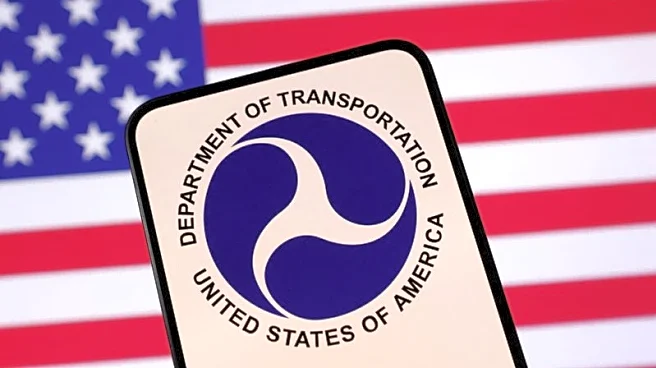What's Happening?
The U.S. cattle industry is facing a potential challenge as President Trump proposes increasing beef imports from Argentina. This move comes as the U.S. cattle herd is in the early stages of rebuilding
after a significant decline in 2024 due to drought and low cattle prices. The proposal has sparked backlash from cattle ranchers and GOP lawmakers who argue that it could undermine domestic efforts to rebuild cattle herds. They also contend that the plan may not significantly lower beef prices, as Argentina accounts for a small portion of U.S. beef imports. Despite these concerns, the administration asserts its commitment to supporting ranchers and reducing consumer prices through various measures, including opening new land and processing plants and securing trade deals for new markets.
Why It's Important?
The proposal to increase beef imports from Argentina could have significant implications for the U.S. cattle industry. If implemented, it may discourage domestic producers from rebuilding their breeding herds, potentially increasing reliance on imports. This could affect the long-term sustainability of the U.S. cattle industry and impact local economies dependent on cattle farming. Additionally, the move contrasts with previous strategies where high tariffs were used to stimulate domestic industries, raising questions about the effectiveness of this approach. The decision also reflects broader geopolitical considerations, as it is part of efforts to strengthen ties with Argentina and reduce its economic reliance on China.
What's Next?
The U.S. Department of Agriculture, led by Secretary Rollins, is reportedly working on a package to boost domestic beef production, which may offer an alternative to increased imports. The details of this package are yet to be disclosed, and its potential impact on the market remains uncertain. Stakeholders, including cattle ranchers and lawmakers, are likely to continue voicing their concerns and advocating for policies that prioritize domestic production. The administration's next steps will be closely watched to see how they balance domestic industry support with international trade relations.
Beyond the Headlines
The proposal to increase beef imports from Argentina highlights the complex interplay between domestic agricultural policy and international trade relations. It raises ethical questions about the balance between supporting local industries and engaging in global trade. The decision could also influence U.S. relations with other beef-exporting countries and impact global beef market dynamics. Additionally, the proposal may prompt discussions on the environmental implications of increased beef imports, considering the carbon footprint associated with long-distance transportation of agricultural products.










